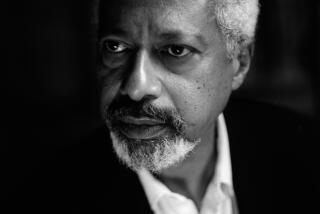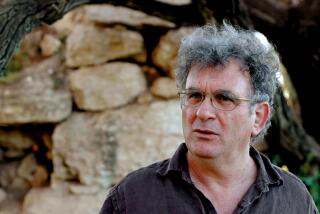“The Next Rodeo: New and Selected Essays” by William Kittredge
These essays, a form of human sacrifice, an apologia pro vita sua, possess an honesty so terrible, so awkward at times that the reader wants to look away. Born in 1932, William Kittredge grew up rich, the scion of a ranching family with 8,000 acres in the Warner Valley of southeastern Oregon. It’s not that his family didn’t love the land; it did. It’s just that the family thought it owned the land and all the animals that lived on it and the people who worked on it as well. Kittredge is very clear; he loved his father, a man tragically, mistakenly, “concerned about dignity, however fragile, as an ultimate value.” That was as far as he got. His son, these essays prove, gets a little bit further, even if it doesn’t feel like much.
When Kittredge came back to the ranch in 1958, after many years away, to take the place of a family that had been tending those acres, he was privy to all the terrible trade-offs, half of which he didn’t know he was making -- the pesticides that killed songbirds, the harsh managerial style that sent broken men packing -- and regretted this only decades later. You hear King Lear screaming nothing, nothing in the wilderness of these essays -- old and blind and full of regret for his own stupidity: “Once we believed work done well would see us through. But it was not true. Once it seemed the rewards of labor would be naturally rationed out with at least a rough kind of justice, but we were unlettered and uninstructed in the true nature of our ultimate values. Our deep willingness to trust in our native goodness was not enough. . . . But we tried. This is a set of stories about that trying, called an apology because it is also a cautionary tale about learning to practice hardening of the heart.”
Why us? Why lay all this at our feet? How could we possibly be the target audience? Kittredge is well loved across the country; but here, in the West, we readers regard him as our philosopher-king, scion of a different legacy: Thomas Savage, Wallace Stegner, Ivan Doig, John Nichols. His nonfiction books (“Hole in the Sky,” “Who Owns the West?,” “Owning It All” and “The Nature of Generosity”), his story collections (“We Are Not in This Together” and “The Van Gogh Field”) and his novel, “The Willow Field,” all contain similar truths told from different perspectives.
But here, forgive me, it’s as if he’s stopped drawing himself up to tell the kinds of stories that keep an audience rapt and impressed; stopped using his considerable storytelling skills, which have been honed by many walks in isolated places, many days actually listening to the world to make something nice. As a matter of fact, every time he catches himself on a riff, making a nice story out of something dark, he comes out and says so. Very disconcerting for a reader. “As I tell the story I mean to say, See, I am not like that anymore,” he says, describing the time he fired old Louie Hanson, who went on a binge, ended up fetal in the bunkhouse, then dead on the way to the hospital. “See. But we know that is only another strategy.”
What do you mean, “we,” paleface? You think: My father wasn’t a rich rancher. I don’t have half the wild memories you have, and I ain’t never fired nobody. If the writer was on the next bar stool, catching himself in lifelong lies, you’d say, “Get along, go home, be grateful for what you have.” Here’s where the cautionary tale part comes in. (By way of a hint, the writer starts using the second person from time to time. “You have drifted into another mythology,” he writes of the drinking life, “called lonesome traveling and lost highways, a place where you really don’t want to be on such a fine spring day.” Here’s where the author wants to tell us not to let our hearts harden, not to ignore or deafen the instincts that tell us when we are doing the wrong thing.
And here’s where the raw art comes in. “Stories hold us together,” Kittredge writes, “in ourselves, and with one another. We use them to reimagine ourselves, the most necessary art.” But this is not exactly what the author of these astonishing essays is doing here. These essays are far more intimate. Sure, taking yourself apart, deconstructing yourself, your life, your stories on paper may be a necessary step on the path to reconstruction. That young self was the product of other values, other cultures, someone else’s sources of dignity. Richard Hugo, a poet whom Kittredge admires, taught the young writer something about the value of stories and home, “an instruction about storytelling as the art of constructing road maps, ways home to that ultimate shelter which is the coherent self.”
In these essays, we get Kittredge at our doorstep, his heart broken, willing like a good cowboy to blame only himself for the strange and beautiful mythology he helped create -- the one that painted a romantic picture of life in the West and drew so much money, so many developers, so much, well, you know the rest.
More to Read
Sign up for our Book Club newsletter
Get the latest news, events and more from the Los Angeles Times Book Club, and help us get L.A. reading and talking.
You may occasionally receive promotional content from the Los Angeles Times.






